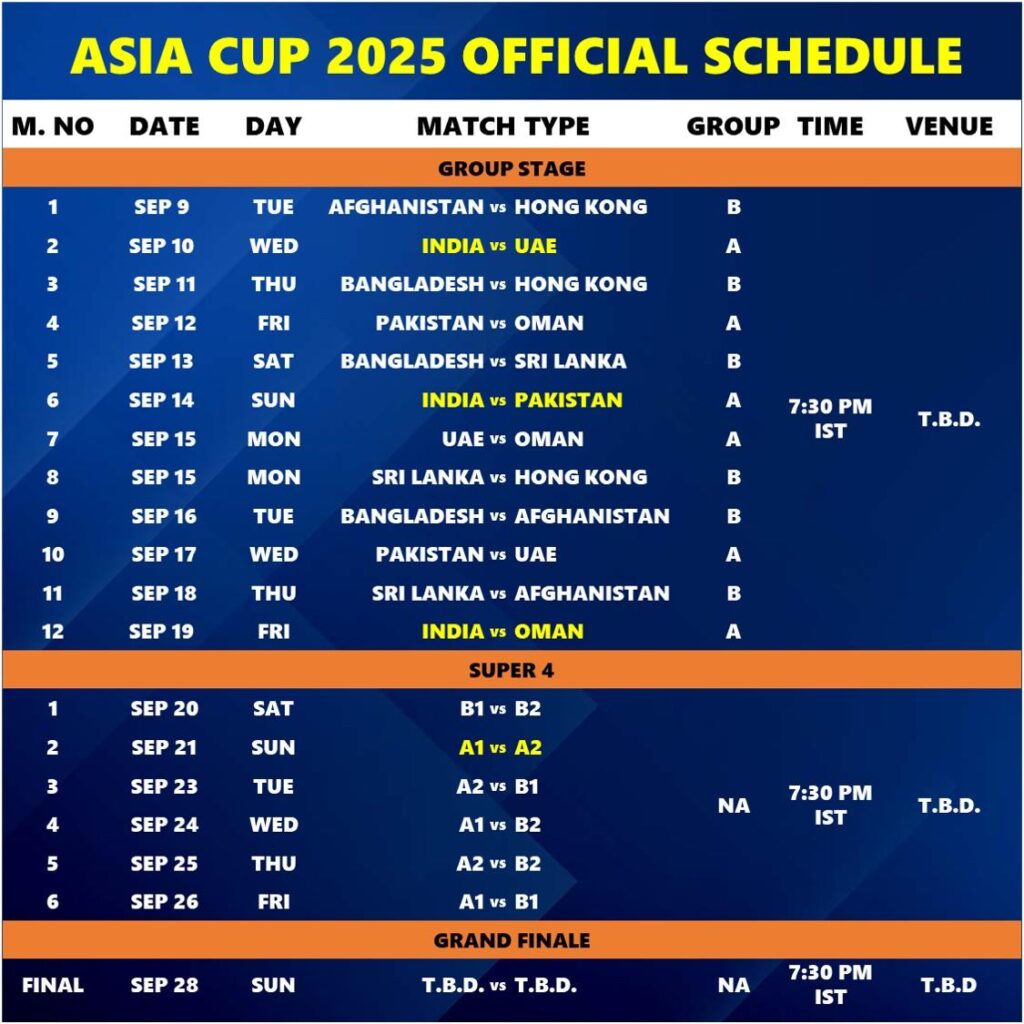- Advertisement -
The Pakistan Cricket Board (PCB) has announced the recall of an official following a controversial incident during the Asia Cup 2025 involving a handshake row with the Indian team. The dispute, which unfolded amid heightened tensions between the two cricketing neighbours, has sparked widespread debate and raised questions about sportsmanship and diplomacy on the field. This development comes as both teams continue to navigate the highly anticipated tournament marked by intense rivalry and political sensitivities.
Asia Cup 2025 Controversy Escalates as Pakistan Cricket Board Withdraws Official Following Handshake Dispute with India
The ongoing tension between the cricket boards of Pakistan and India has reached a new peak amid the Asia Cup 2025, following a reportedly contentious handshake incident between officials from both sides. The Pakistan Cricket Board (PCB) has made the unprecedented decision to recall one of its senior officials after the handshake dispute, citing concerns over the dignity and respectful treatment of its representatives. Sources close to the PCB revealed that the official was withdrawn to de-escalate the simmering discord that threatens to overshadow the tournament.
Key details of the incident include:
- The handshake refusal allegedly occurred during the pre-match conference, sparking immediate diplomatic unease.
- Both boards have exchanged formal complaints, heightening fears of retaliation and further conflict.
- The PCB emphasized the move as necessary to protect the interests and morale of its team and staff.
| Event | Action Taken | Impact |
|---|---|---|
| Handshake Incident | Official recalled by PCB | Increased rivalry, media spotlight |
| Formal Complaints | Letters sent between boards | Diplomatic tensions rise |
| Team Morale | PCB statements issued | Focus on fair play emphasized |
Examining the Impact of the Handshake Incident on India-Pakistan Cricket Relations and Tournament Diplomacy
The recent handshake incident during the Asia Cup 2025 match between India and Pakistan has reignited longstanding tensions not only in cricketing spheres but also in diplomatic relations tied to the sport. The unscheduled refusal of cordiality on the field was perceived by many as an emblem of the fragile state of India-Pakistan cricket interactions, further complicating an already delicate sporting rivalry. Key stakeholders from both countries have expressed concerns over the impact such moments have on the overall spirit of tournament diplomacy, where cricket often serves as a bridge to foster peace and dialogue.
Experts and analysts highlight several repercussions stemming from the incident:
- Strained communications between cricket boards, leading to operational adjustments ahead of future bilateral series
- Heightened scrutiny from fans and media, increasing pressure on players to maintain decorum beyond athletic performance
- Potential diplomatic ripple effects as governments leverage cricket engagements to signal broader political stances
| Aspect | Impact | Possible Outcome |
|---|---|---|
| Board Relations | Delay in scheduling bilateral matches | Reduced cricketing exchanges for 1-2 years |
| Player Conduct | Increased behavioral regulations | Stricter ICC guidelines |
| Diplomatic Signals | Heightened political sensitivity | Possibility of sports diplomacy stall |
Recommendations for Conflict Resolution and Sportsmanship Protocols Ahead of Future Asia Cup Matches
In light of the recent tensions during the Asia Cup encounter between Pakistan and India, it is imperative that both the Pakistan Cricket Board and the Asian Cricket Council institute clear, standardized protocols to mitigate future conflicts. Implementing mandatory pre-match briefings focusing on sportsmanship and conflict de-escalation can prepare players and officials alike for high-pressure situations. Additionally, appointing a neutral panel of conflict resolution experts at each venue will help mediate on-field disagreements promptly, reducing the chances of escalation into public controversies.
Beyond procedural changes, fostering a culture of mutual respect must take precedence through educational initiatives and consistent reinforcement by team management. Recommended steps include:
- Code of Conduct Workshops: Regular sessions highlighting respect, fair play, and the spirit of the game.
- Handshake Protocols: Clear guidelines on post-match interactions emphasizing professionalism regardless of outcomes.
- Conflict Reporting Mechanism: Confidential channels for players and officials to report grievances before situations escalate.
| Protocol | Objective |
|---|---|
| Pre-Match Briefings | Set expectations for behavior and conflict resolution |
| Neutral Mediation Panel | Quick conflict intervention during matches |
| Handshake Guidelines | Standardize post-match conduct |
| Conflict Reporting | Secure and prompt issue escalation |
In Retrospect
The recall of the Pakistan Cricket Board official amid the ‘handshake row’ with India underscores the enduring tensions that continue to affect cricketing relations between the two nations. As the Asia Cup 2025 approaches, both boards face mounting pressure to ensure the tournament proceeds smoothly, emphasizing sportsmanship and diplomatic conduct. How these incidents are managed could have significant implications not only for the event itself but also for the broader future of cricketing ties in the region.
- Advertisement -


